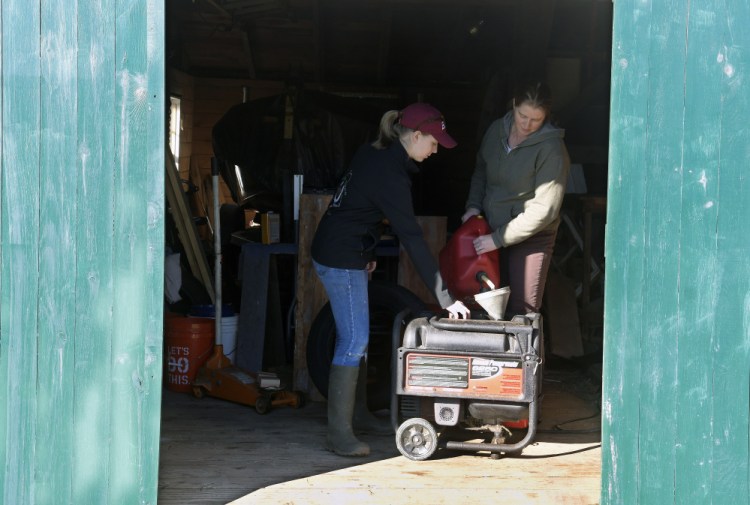I assumed it was only a matter of time before Maine got hit by a severe storm.
After a fall that included three devastating hurricanes — Irma, Harvey and Maria — as well as devastating wildfires in northern California and Portugal, how long would we be safe?
The answer came earlier this week, when wind ripped through the state, downing trees and power lines.
As I lay in bed in the early morning and listened to the wind howling like a freight train barreling down the tracks, I felt afraid. I knew we would not be in for a Puerto Rico-like experience, but the gusts were strong. It doesn’t take much weather mayhem to create dangerous situations.
Besides, the weather has become so unpredictable, it would be foolhardy not be concerned whenever you hear things flying around your house at 3 a.m.
I’ve been fearful during at least two other weather events. The first was the Blizzard of 1978, when I was a student at Providence College. My “spidey sense” told me this was going to be a big storm, and I didn’t want to endure it in my meagerly heated apartment. So I drove the 15 miles from Rhode Island to our home in Massachusetts in my 1964 Ford Falcon station wagon.
I was too young to be worried until I was forced off the road by deteriorating conditions and ended up in a shopping center parking lot. I called my father for help, but in those few minutes before he arrived, I worried I would be buried and stuck in my car. Of course, that’s exactly what happened to thousands of people in southern New England, New York and New Jersey.
The second time was in Augusta during the Ice Storm of 1998. I remember not being able to sleep. I went into the guest room with a book: “Into Thin Air,” by Jon Krakauer. The book details a major mountaineering disaster on Mount Everest in 1996. It felt surrealistic to be reading about the perils of mountain climbing while hearing branches cracking outside my window.
My husband, Paul, and I did lose power for several days during that storm. Both events did leave people with a fear that such crises could happen again. After the Blizzard of 1978, for example, those who had lived through it felt the need to leave work as soon as a few snowflakes fell. That’s because in the blizzard, those who waited too long ended up stuck in their cars.
This week’s wind storm took down a trellis and a vine and some tree branches in our yard. One large branch blocked our driveway, but Paul was able to move it. A small tree in a neighbor’s yard crashed over the fence and into our yard. But our power stayed on the entire time.
Yet I know how rough others have had it. First thing Monday morning, I had a call from a colleague who was trying to get to work. She was encountering downed trees and lines in the dark and was concerned she wouldn’t be able to make it in. I was so happy to be able to tell her she could turn around and go home. School had been canceled, but without power or cellphone service at home, she hadn’t been alerted.
Facebook and conversations on my errand run around town in the afternoon (when the sun actually came out for a while) provided more stories. Some people had to try several routes before they found one that wasn’t blocked by trees or lines. There were trees on top of vehicles. Cars and trucks off the road. Power lines dangling. Grand old trees toppled into yards.
And, as it turned out, there were more power outages than during the Ice Storm of 1998. That information just blew my brain circuits.
If the weather were all we had to worry about, we’d have plenty on our plate. But The Wall Street Journal recently noted that therapists “have, for months, been reporting a significant increase in clients who are stressed and saddened by current events — hurricanes, fires, the threat of nuclear war.” I would add the political scene in general, as well as the perceived acceleration of climate change.
The author of the article describes various stress-reduction techniques, such as yoga and meditation. I liked her suggestion of putting sticky notes in various spots that proclaim, “Don’t speculate!”
But to tell you the truth, I think most Mainers will handle their angst over this latest storm by getting out there and cleaning up. In times like these, the roar of a chain saw can soothe the most ravaged soul.
Just don’t forget to breathe.
Liz Soares welcomes e-mail at lsoares@gwi.net.
Send questions/comments to the editors.




Comments are no longer available on this story